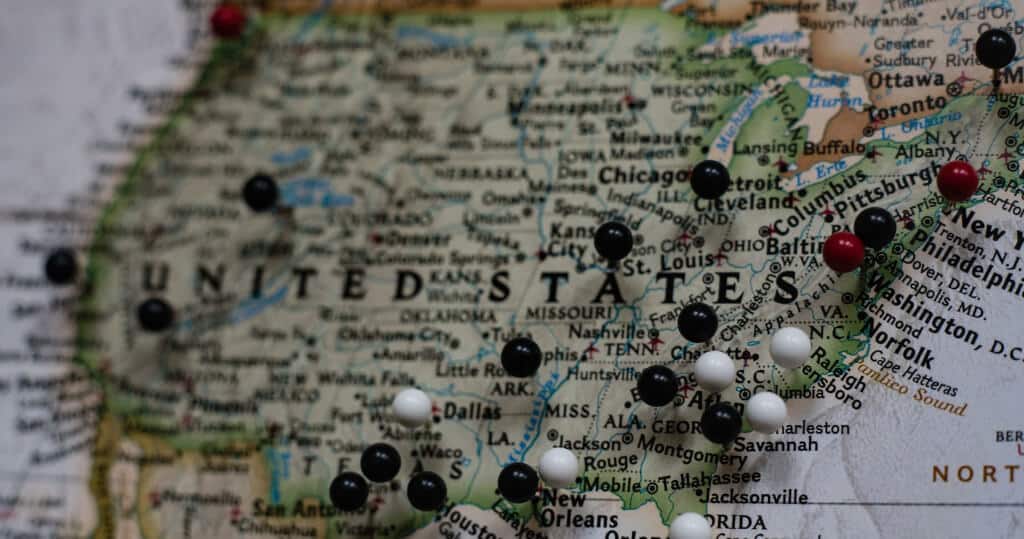

The first 10 amendments were created to try and persuade certain states to accept the whole constitution. It was difficult getting the United States Constitution ratified because many states felt it gave too much power to the Federal Government and not enough to the people. What are the first 10 amendments called? The first 10 amendments are called the Bill of Rights . To learn more about the Bill of Rights and the first 10 amendments that make up the Bill of Rights, continue reading.

Throughout America’s history and the birth of the United States Constitution, ten amendments have proved vital to the country’s development as the greatest nation in the world. These ten amendments are known as the Bill of Rights . As the first ten and most significant amendments to the United States Constitution, the Bill of Rights focuses on the individual rights and freedoms of the American people. It safeguards against any potential overreach attempted by the federal or state government. Below, we’ll examine the Bill of Rights, the reason for its existence , and why it was created in the first place.
The Bill of Rights, simply put, are the first ten amendments added to the US Constitution , first enacted in 1791. They include the following:
| Amendment | Description |
|---|---|
| 1st | Protects the freedom of speech, religion, press, assembly, and petition |
| 2nd | Protects the right to keep and bear arms |
| 3rd | Prohibits the government from quartering soldiers in private homes during peacetime |
| 4th | Protects citizens against unreasonable searches and seizures without a warrant or probable cause |
| 5th | Provides protections for citizens accused of crimes, including protection against double jeopardy, self-incrimination, and loss of life, liberty, or property without due process of law |
| 6th | Guarantees the right to a fair and speedy trial by an impartial jury in criminal cases |
| 7th | Guarantees the right to a trial by jury in civil cases |
| 8th | Prohibits excessive bail, excessive fines, and cruel and unusual punishment |
| 9th | Affirms that the people have rights not listed in the Constitution |
| 10th | Reserves powers not granted to the federal government to the states or the people |
The table above provides a brief description of the first 10 amendments, also known as the Bill of Rights, which were added to the US Constitution to protect individual liberties and limit the power of the federal government.

The First Amendment is considered the most important amendment throughout the entirety of the Bill of Rights and the Constitution as a whole. The 1st Amendment protects the American people from governmental sanctions and attacks for expressing unpopular or offensive opinions and from persecution due to their particular religious or faith-based beliefs. The First Amendment similarly protects the rights of journalists from persecution by the government, allowing them to serve as watchdogs for corruption or an abuse of power. The Freedom of Speech is our most vital freedom. It allows citizens the right and ability to freely communicate thoughts and ideas, regardless of what the governmental powers deem to be allowed at that period in time.
Join the thousands of fellow patriots who rely on our 5-minute newsletter to stay informed on the key events and trends that shaped our nation's past and continue to shape its present.

A somewhat divisive amendment with multiple interpretations, the Second Amendment essentially states that the people have the fundamental right to bear arms in defense of a free state. This sentiment has been considered and interpreted in multiple ways depending on a person’s personal views surrounding guns and gun control. Advocates for guns argue that the Second Amendment’s final line on “the right of the people to keep and bear arms, shall not be infringed” clearly states that the right to carry guns is guaranteed. Meanwhile, those who advocate for gun control and safety contend that the line “A well-regulated militia” implies that only an established militia should be allowed to carry guns and only appropriately regulated guns.
A reasonably simple amendment, the Third Amendment, states that no citizen is legally required to allow military or armed forces members to reside in their homes or private property. While not as contentious as the others on this list, this freedom is important, particularly considering the British parliament’s Quartering Acts, which forced military men into private homes during the Revolutionary War.

Considered by many to be either unnecessarily broad or freedom that is constantly ignored by many police and governmental officials, the Fourth Amendment is stated to protect against illegal search and seizure, especially without probable cause. Because this has been interpreted in multiple ways, police have been known to abuse the inclusive statement of “probable cause” to perform unlawful searches in homes or of a person’s property.
The Fifth Amendment guarantees an American the fundamental right to due process. It can also be invoked to avoid self-incrimination when speaking on trial. This is primarily because, while a person is under oath, they are bound to speak honestly. By invoking the Fifth Amendment, they can prevent themselves from potentially incriminating themselves while not committing perjury.

The Sixth Amendment is pretty straightforward as it guarantees the accused a trial as quickly as possible while also in public and among a jury of their peers. This is because, before its introduction, the accused could be placed in holding for their trial indefinitely or given “secret trials” where there may not be fairness or impartiality .
The Seventh Amendment states that all accused are guaranteed a jury trial, regardless of the severity of the crime.

Eighth Amendment ensures that those convicted of a crime are not forced to pay excessive fines, given unjust jail time sentencing, or given cruel or unusual forms of punishment. The protection from cruel and unusual punishment was in response to the more gruesome methods of performing capital punishment by those convicted of a crime, both in the early Americas and throughout British history.
The Ninth Amendment guarantees that Americans are protected outside the first ten amendments. This is because it is impossible to go over every civil right and freedom to which citizens are entitled.

Finally, the Tenth Amendment ensures that people and states are guaranteed any powers not expressly given to the federal government. The 10th Amendment ensured that the federal government’s power never extended beyond the checks and balances put into place by the Constitution.
The Bill of Rights was first implemented largely due to the Articles of Confederation’s weakness and the proposed overall strength of the US Constitution. The Constitution was widely regarded as a superior structure compared to the Articles of Confederation. However, many feared a potential abuse of power granted to the federal government. Therefore it was advised that a Bill of Rights be included. This Bill of Rights was drafted by James Madison and currently sits as the benchmark for all civil rights and liberties given to free people. Watch the following video to learn a great way to memorize the first 10 amendments to the US Constitution (or the Bill of Rights)